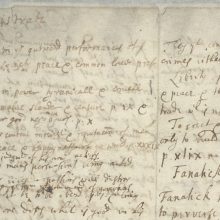
Photo from archive.org
Writing in the half-century after the “conversion” of Constantine, Bishop Hilary of Poitiers wrote two works regarding Emperor Constantius II. The first, Ad Constantium, is a polite and formal letter,… Click to show full abstract
Writing in the half-century after the “conversion” of Constantine, Bishop Hilary of Poitiers wrote two works regarding Emperor Constantius II. The first, Ad Constantium, is a polite and formal letter, seeking an audience with the emperor. The second, In Constantium, is a harangue against the emperor. Some scholars have proposed that the difference in tone between these two documents indicates that Hilary had come to advocate for the emperor to be completely uninvolved in the affairs of the Church. Closer analysis reveals that Hilary always endorsed a position in which the emperor should be involved in ecclesiastical affairs, so long as he submitted to the higher authorities of scripture and the ancient apostolic faith. Hilary would have had no concerns with a pro-Nicene emperor enforcing proto-orthodox church councils and creeds. Prior to Hilary, most of Christianity had accepted imperial involvement in the Church. But the involvement of the Roman emperors in ecclesial matters caused many to have to consider the problems of someone outside of the Church making decisions for the Church. Hilary's efforts stand as one of the first western attempts to nuance and limit the emperor's ecclesiastical role.
Journal Title: Church History
Year Published: 2017
Link to full text (if available)
Share on Social Media: Sign Up to like & get
recommendations!